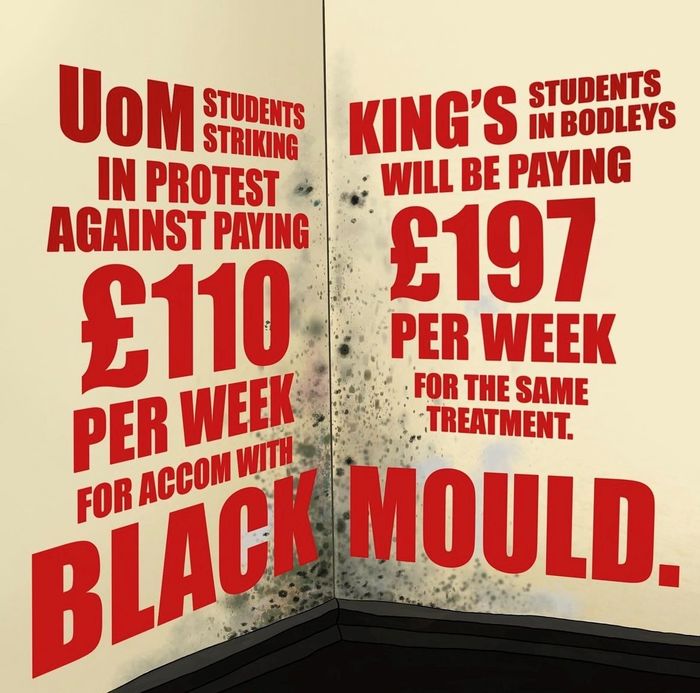Cambridge should be proud of its bursary programs
Keeping quiet about how much money the University and its colleges give out is counter-productive

When I told my friends from home I was receiving £4500 each year from my university and college, first they were shocked and then, well, then they were sourly jealous.
The Cambridge Bursary costs the University approximately £10m per year. It is available to anyone with a household income of less than £62,215 – almost double the national average (though the amount recipients get tapers significantly at the top of the income spectrum). That is insane. In the context of the UK, Cambridge would be willing to sponsor 50% of applicants. Given the average Cambridge student’s background is not, well, average, we may expect this percentage to shrink – but one is unable to deny the impressiveness of the gesture (or perhaps we may chuckle at what the University classifies as “hardship”). Yet, I do have to applaud them. If they have the money, then this is a very admirable way to use it.
As much as Cambridge students love to complain about workload and academic pressure, the financial stress facing most students at other universities in the UK is almost entirely removed. Whilst all the former issues do exist and I don’t wish to discount them, every time I see students shopping in M&S, I am reminded that there are parts of this institution that are unequivocally beneficial for the average (or perhaps rare) state school Joe.
“The Cambridge Bursary costs the University approximately £10m per year”
Yet as much as I sing the Cambridge Bursary’s praises, I still have not quite come to terms with its liberality. The University’s capacity to splurge so much money on me was entirely stupefying when I found out about it rather late in the application process. In fact, I think I had already written my personal statement, sent it off, and read the surviving works of Sophocles before I was even aware that I would be given £3500 as an early Christmas present.
I can only think that this bursary system is so under-marketed to prospective applicants because to those who have money, or have spent a lifetime securely nestled in the University’s bureaucracy, it does not have the same shock factor that it did for me. Perhaps admissions staff suffer from Steven Pinker’s “curse of knowledge” where, since they know about the grants, they cannot imagine that anyone else may not. Last term I told my Director of Studies that applying for a £300 college travel grant “felt a bit shifty – just asking for money”. His response – “why?” – is one of the most puzzling things he has said to me, in a fairly crowded field.
All this is to say that the Cambridge Bursary is an incredible support for anyone eligible for it. It should be a major selling point for the University. Along with its reputation for academic rigour and the little Oxbridge stamp on your CV, for disadvantaged students £3500 could loosen the financial nooses of higher education, making them more like warm, fluffy scarves.
College-specific grants vary greatly. I am not sure if any of you had insider knowledge, but all that I was told about which college to write on my UCAS form was “It doesn’t really matter. Just choose one you like the look of”. Needless to say, I had no idea of the extent of college bursary schemes. I had not seen, for example, that St. John’s College offers, verbatim, “Free Places”. Say whatever you like about John’s, but you cannot say it is not generous. Meanwhile I can’t easily extract a single concrete promised figure from the Murray Edwards website.
Either the Cambridge bubble has not twigged how possibly crucial these differences may be to a student wary of the crippling cost of higher education – or they want to keep it secret. I prefer to give the institution the benefit of the doubt. They are, after all, paying me a lot of money to say this. I believe we need to shout about these fantastic financial opportunities from the rooftops. This is a rarity among higher education institutions. Give all students another reason to reach for this University and prize your college higher.
Using money as a motivator is conflicting, as was highlighted to me when I spoke to my college admissions team about this issue. If everyone applied to the college with the highest bursary the risk is that they would lower their chance of acceptance. This was empathetically used as an explanation for the little advertising done by individual colleges on their additional grants. The point is, of course, valid – but my question is why not advertise this difficulty too? Why not let the applicant make a fully informed decision? If it would be so grievous to have disproportionate applicants to wealthy colleges, then surely the efficacy of the pooling system comes under contention?
 Music / The pipes are calling: the life of a Cambridge Organ Scholar25 April 2025
Music / The pipes are calling: the life of a Cambridge Organ Scholar25 April 2025 News / Candidates clash over Chancellorship25 April 2025
News / Candidates clash over Chancellorship25 April 2025 Interviews / Dr Ally Louks on going viral for all the wrong reasons25 April 2025
Interviews / Dr Ally Louks on going viral for all the wrong reasons25 April 2025 Comment / Cambridge builds up the housing crisis25 April 2025
Comment / Cambridge builds up the housing crisis25 April 2025 News / Cambridge professor paid over $1 million for FBI intel since 199125 April 2025
News / Cambridge professor paid over $1 million for FBI intel since 199125 April 2025






